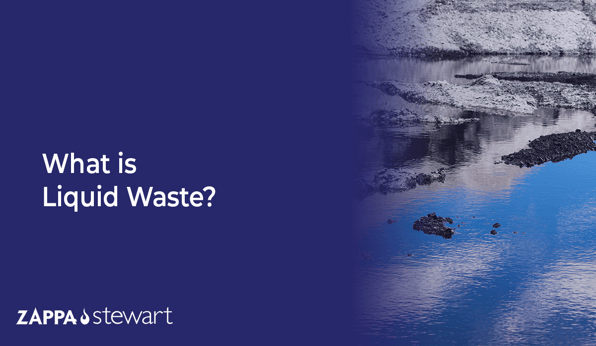Get This Report about Reclaim Waste
Get This Report about Reclaim Waste
Blog Article
8 Simple Techniques For Reclaim Waste
Table of ContentsOur Reclaim Waste IdeasExamine This Report on Reclaim WasteSome Known Factual Statements About Reclaim Waste The smart Trick of Reclaim Waste That Nobody is DiscussingThe Reclaim Waste PDFs
Discover the types, events, and types of liquid waste. Residential sewer waste describes the waste and products from a property sewage-disposal tank. This sort of waste is created by human beings in homes, schools, and various other buildings. This only consists of sewage-disposal tanks that have a drainpipe area. The appropriate management and disposal of residential sewage waste need liquid waste to be transferred to a sewer treatment plant where the proper approaches and equipment are related to purify and get rid of waste.
Commercial waste commonly includes prospective hazards, such as flammable products or a mix of liquid and strong waste products, and requires an extra advanced and detailed disposal process. The disposal of business waste usually involves the filtering of waste prior to transportation to guarantee risk-free and proper disposal. Hazardous waste is produced from results and overflow of industrial processes and manufacturing.
This sort of waste can not utilize the same sewage management transportation or processes as septic or business fluids. The hazardous waste management process needs the examination and testing of fluid waste before it undergoes the disposal process (liquid waste disposal melbourne). Drainage waste is the liquid waste that comes from drainage and excess stormwater in very booming locations or cities
Drainage waste can create contamination and flooding otherwise taken care of effectively. Find out more concerning sewage system cleansing and waste monitoring. Guaranteeing proper waste management can prevent disasters and reduce ecological damage. Both people in domestic settings and specialists in business or production industries can gain from comprehending the processes and regulations of fluid waste monitoring.
Get This Report about Reclaim Waste
Get in touch with PROS Services today to find out about our waste monitoring and disposal solutions and the correct methods to care for the liquid waste you generate.
(https://www.tumblr.com/reclaimwaste1/766851148823068673/at-reclaim-waste-were-a-national-solutions?source=share)Do you know what happens to your water when you end, flush the toilet or drain pipes the washing equipment? No? Well, it's worth recognizing. This so-called 'wastewater' is not just a crucial resource yet, after therapy, will be launched to our land, waterways or the sea. Used water from toilets, showers, bathrooms, kitchen sinks, washings and industrial processes is called wastewater.

water made use of to cool machinery or tidy plant and equipment). Stormwater, a type of wastewater, is runoff that moves from farming and urban click reference locations such as roofing systems, parks, yards, roadways, paths and rain gutters right into stormwater drains pipes, after rain. Stormwater streams neglected straight to neighborhood creeks or rivers, ultimately getting to the sea.
The Greatest Guide To Reclaim Waste
In Queensland, many wastewater is treated at sewage treatment plants. Wastewater is moved from domestic or industrial sites through a system of drains and pump stations, called sewerage reticulation, to a sewage treatment plant. Local governments develop, preserve and operate most sewage therapy plants. Operators are accredited under the Environmental Management Act 1994 to release cured wastewater at an appropriate ecological requirement into waterways.
The Department of Natural Resources recommends local governments concerning handling, operating and keeping sewerage systems and therapy plants. In unsewered locations, city governments may call for homeowners to install individual or house sewer treatment systems to deal with residential wastewater from toilets, kitchens, bathrooms and washings. The Department of Natural Resources authorizes the usage of family systems when they are shown to be reliable.
In some brand-new class, treatment of some stormwater to eliminate litter, sand and crushed rock has actually begun making use of gross pollutant catches. Wastewater therapy occurs in 4 phases: Eliminates strong matter.
Wastewater after that streams right into large storage tanks where solids resolve and are eliminated as sludge. Oil and residue are skimmed from the surface. Makes use of small living microorganisms referred to as micro-organisms to damage down and eliminate staying dissolved wastes and fine fragments. Micro-organisms and wastes are incorporated in the sludge. Eliminates nitrogen and phosphorus nutrients that can cause algal flowers in our rivers and threaten aquatic life.
Examine This Report on Reclaim Waste
Nutrient removal is not available whatsoever sewage treatment plants because it needs costly specialist equipment. It is becoming much more common in Queensland. Clear liquid effluent produced after treatment might still have disease-causing micro-organisms. If this effluent is launched right into rivers such as rivers or the sea, the micro-organisms will ultimately die out.

Many wastewater moves into the sewage system. Under the Act, regional federal governments administer authorizations and licences for eco appropriate tasks (ERAs) entailing wastewater releases that may have a local effect.
Some Known Factual Statements About Reclaim Waste
Otherwise, examples are considered research laboratory analysis. Typically many tests are required to develop the degrees of each of the various contaminants such as oils, heavy metals and chemicals in water. Surveillance provides factual info regarding water top quality and can verify that licence problems are being fulfilled. The information obtained through tracking supplies the basis for making water top quality choices.
Report this page